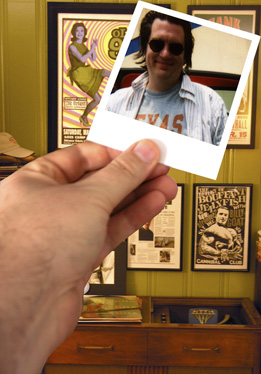 Michael Wolff makes a case in Vanity Fair that the patriarch model (or Billionaire option) may be the best chance newspapers may have to survive.
Michael Wolff makes a case in Vanity Fair that the patriarch model (or Billionaire option) may be the best chance newspapers may have to survive.
Here’s why he think that’s the case:
In essence, news, or publicity, that true currency of our time, is worth more to newsmakers—and every billionaire is a newsmaker who associates with other newsmakers—than to investors (and perhaps even to news consumers). So at the end of the day theirs will be the winning bid.
For journalists, who as the industry has contracted have become ever more ethically self-righteous, this is the ultimate nightmare scenario (save only for going out of business itself). To be owned and operated by somebody who has juice in the game—who might get value out of what the paper writes or whom it writes about and how—contradicts the whole point of contemporary journalism.
And yet, as my billionaire recognized during my brief visit, there is, too, a mutuality of interest—of sensibility even—between billionaire and journalist. Newspapers may be absolutely ending, but people within an industry, any industry—and these billionaires, accustomed to being written about, are as much involved with newspapers as the people writing about them—are the last to be able to see its absolute end. (Whereas for people outside the industry, especially outside the newspaper industry, especially among the growing majority who don't read a paper at all, the end seems to be almost inconsequential.) It's impossible to believe that something that defines your life, something that exists as big as life—like, say, an American car—will just cease to be. (This kind of denial is one of the things that make industrial decline such a glacial process.)
Basically, it comes down to newspapers as a fashion accessory for the rich. When Gulfstream jet or a private island isn’t enough, buy a newspaper. That’s scary enough. What’s really scary is this: is it really possible that newspapers would cease to exist?
Obviously, the Golden Age of Newspapers is over – the days of 100 percent market penetration will never come again. But can communities exist without newspapers?
Wolff compares newspaper unfavorably to utilities “personality-less, reliable, bureaucratic, and, until very recently, throwing off lots of free cash flow. In this public-utility age of newspapers, the institutional blandness which resulted—reporters themselves, once clever and disreputable, became something like public-service employees, seeing themselves with the beleaguered virtue of schoolteachers—helped turn newspapers into a medium for old people (newspapers are for people who remember newspapers).”
Sad but true. People these days want some sizzle with their steak. They want to be entertained. Thanks to the Internets, that’s easy. But can you really be involved in your community if you don’t know what’s going on in your community?
I’m just askin’.

No comments:
Post a Comment